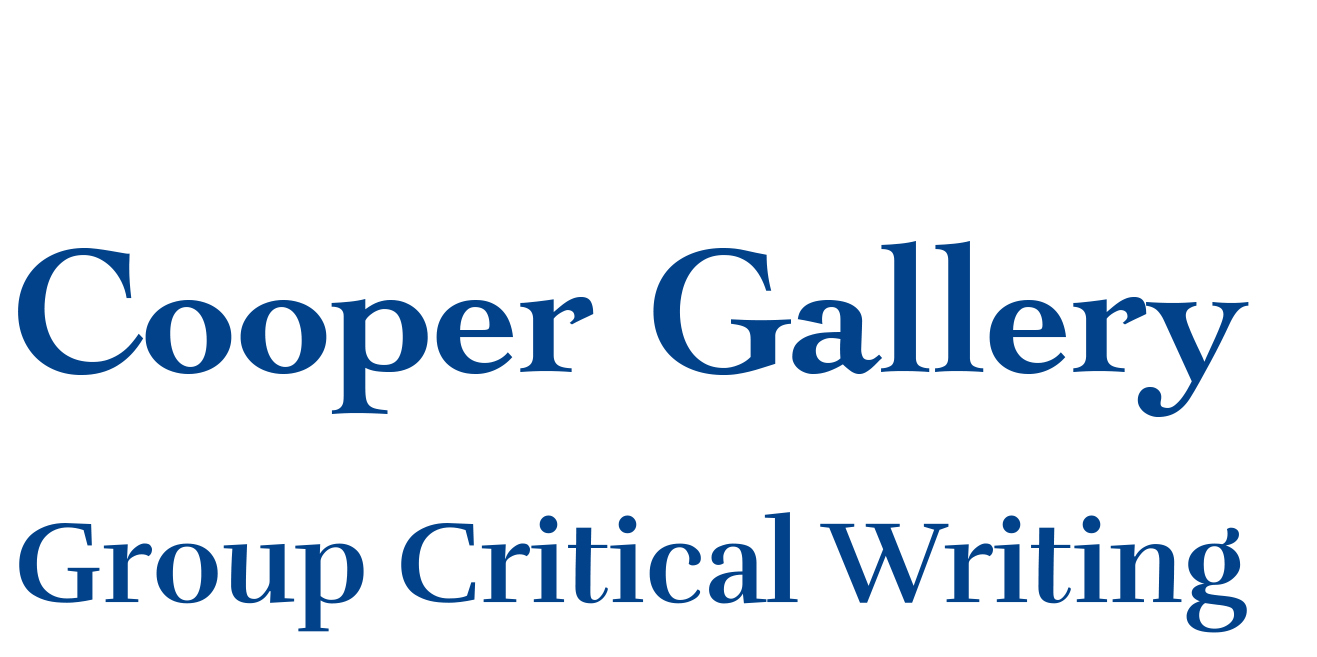Catherine M. Robb & Joel S. Summers
♦ Responsibility, Self and the Author ♦
(Notes for recital: Each numbered phrase is to be read once, in any order, chosen aleatorically. Any number of people, between two and eighteen, can participate in the performance.)
1. In the beginning there was the author. It created the word. The word was formless and empty, darkness was over the surface of the text and silence was hovering over the ink.
2. We can choose what we know. The author lends us understanding, giving us a lens and a blueprint with which to comprehend text. Just as God gave Adam and Eve the potential for knowledge, we can choose to take the book from the shelf, the biography from the library. We can choose what we want to know.
3. The written word reveals nothing until we participate in it. Its meaning is our meaning. We are the art, as both subject and object.
4. Revelations proclaims the sanctity of the scroll. Adding, subtracting, extracting results in decay; the tree of life stunted through our selfish interaction with the word. But taking away does not only mean to reduce. It also means to gain.
5. What do we take away, gain, when we read or write? What does the text reveal in us, and what do we reveal in the text?
6. Yes, the author is coming soon. But we are the author. We are the text.
7. Nietzsche claims that God is dead. Barthes writes of the death of the author. Can’t you see that this is the same?
8. The work is in the public domain. It is authored by you, and me, and us. If the work is just its meaning, then the work is us.
9. Sometimes we fear the depth of what we don’t know. Until the text has a meaning for us, realised by us, we don’t actually know it at all. Perhaps this means that we don’t know ourselves; it may be that we even fear ourselves.
10. Does that mean that we fear the author?
11. Once we realise that collaboration is the only way of authoring, there is liberation. The text is liberated from our fear of its depth and the apparent safety of the shallow waters of its surface.
13. What is it that gave rise to this myth of the author? Why did we decide that only one knows best?
14. The social act of co-authoring neutralises the insularity of the individual. Perhaps collaboration is the only true egalitarian ideal.
15. We used to trust the judgement of one over the judgement of many. We haven’t honoured our own voices with faith and authenticity.
16. If we give the text its meaning, or in other words, if we are the text, who has authored us? We are constantly looking for someone, something to author our own lives, to give meaning to our own texts.
17. With great authorship comes great responsibility.
18. Through knowing how others see us, how others might author us, we might find ourselves where we never thought to look. Between the lines lie our callings to challenge, displace, pluralise and make.
19. If the author makes in a forest and there is no one around to see it, does it make any thing at all?
♦ ♦ ♦
Biography
Catherine M. Robb is currently based in Glasgow, researching for a PhD in Philosophy. Joel S. Summers is an English teacher at an inner-city academy in South London. This is their first collaboration.
